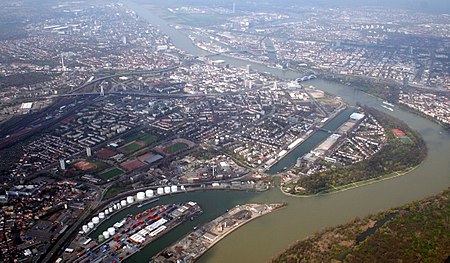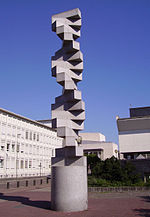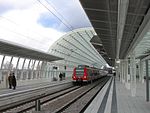Ludwigshafen

Ludwigshafen, officially Ludwigshafen am Rhein (German pronunciation: [ˈluːtvɪçsˌhaːfn̩ ʔam ˈʁaɪn] ; meaning "Ludwig's Port upon Rhine"), is a city in the German state of Rhineland-Palatinate, on the river Rhine, opposite Mannheim. With Mannheim, Heidelberg, and the surrounding region, it forms the Rhine Neckar Area. Known primarily as an industrial city, Ludwigshafen is home to BASF, the world's largest chemical producer, and other companies. Among its "cultural" facilities are the Staatsphilharmonie Rheinland-Pfalz . It is the birth place and death place of the former Chancellor of Germany Helmut Kohl. In 2012, Ludwigshafen was classified as a global city with 'Sufficiency' status by the Globalization and World Cities Research Network (Ga_WC).
Excerpt from the Wikipedia article Ludwigshafen (License: CC BY-SA 3.0, Authors, Images).Ludwigshafen
Pasadenaallee, Ludwigshafen am Rhein Mitte
Geographical coordinates (GPS) Address Nearby Places Show on map
Geographical coordinates (GPS)
| Latitude | Longitude |
|---|---|
| N 49.481111111111 ° | E 8.4352777777778 ° |
Address
Felix Bowling
Pasadenaallee 15
67059 Ludwigshafen am Rhein, Mitte
Rhineland-Palatinate, Germany
Open on Google Maps









